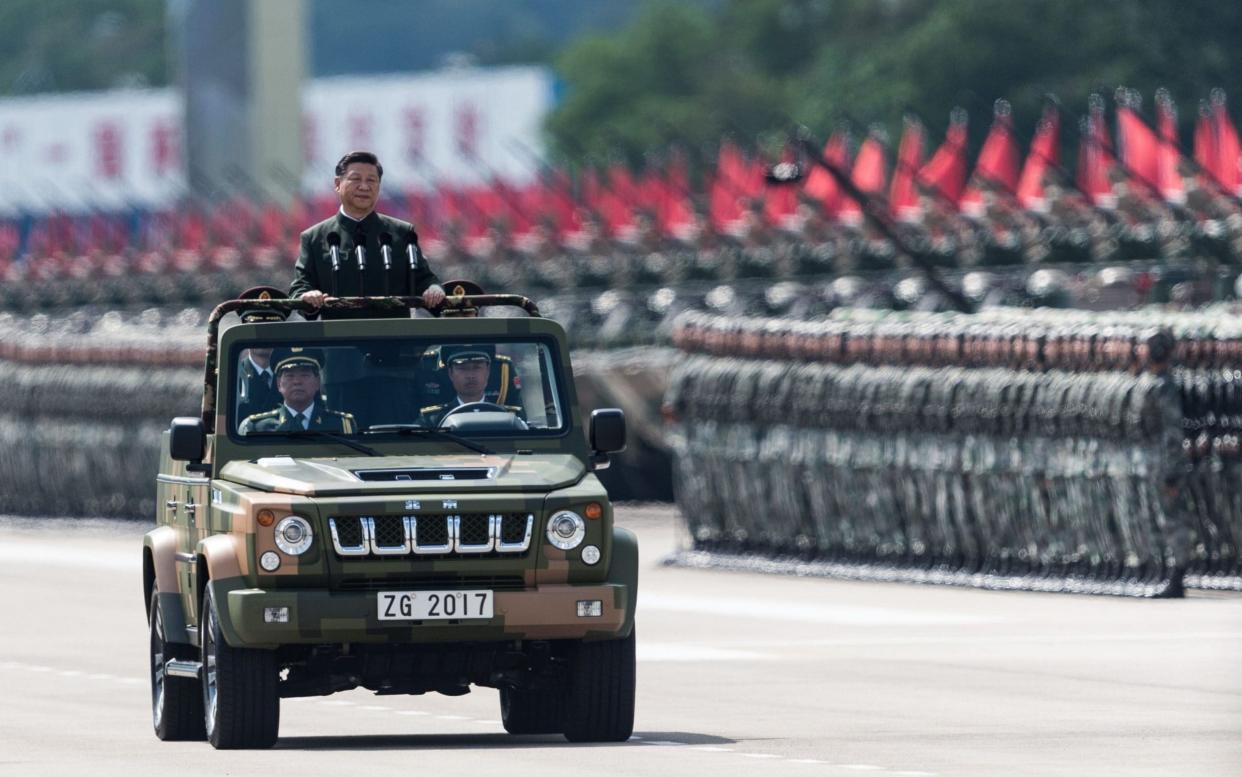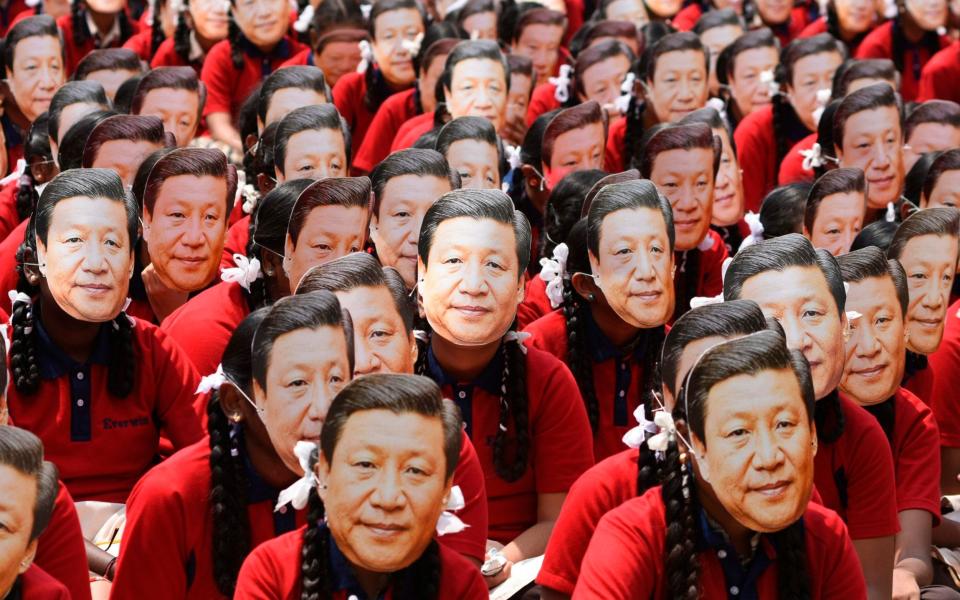The days of China ‘hiding and biding’ its might are officially over

- Oops!Something went wrong.Please try again later.
- Oops!Something went wrong.Please try again later.
The days of China ‘hiding and biding’ on the world stage are clearly now over.
That maxim, espoused by Deng Xiaoping, China's leader from 1978 to 1989, advocated concealing the nation's might from the world and going about its business quietly.
Today the reverse is true. Beijing’s sanctions against the UK and EU - targeting MPs, academics, even legal groups - show the regime of Xi Jinping will not tolerate dissent from anyone, anywhere.
The signs of a fresh approach to critics of China, both at home and abroad, have been piling up. There was the imposition of the national security law on Hong Kong, criminalising dissent within the territory but also - ominously - said to apply globally.
Foreign media outlets including the Telegraph have come under attack from Beijing for coverage of China that doesn’t align with the official narrative.
Just this week, foreign brands including Burberry and H&M were hit by a state-orchestrated boycott after they stopped sourcing cotton from Xinjiang over forced labour concerns.
Why the sudden surge of aggression? China is the fastest growing power in the world, and Beijing is tired of being criticised and bullied by the West.
The regime's tit-for-tat sanctions show China's leaders now consider themselves powerful enough to fight back against the old powers of the West – the underlying message being, ‘anything you can do, we can do too.’
“The days when foreign powers could force China open its doors with cannons are long gone; also gone are the days when several so-called scholars and media could unscrupulously malign China in collusion without being punished,” Chinese foreign ministry spokesperson Hua Chunying declared this week.
So China is flexing its muscles to challenge a rules-based world order set by the West in a campaign to be treated as an equal. It plays well at home.

But there are genuine questions over whether the show of force is wise. Beijing’s behaviour is certainly not winning hearts and minds, and instead appears to be doing damage to its international standing.
Countries from the Philippines to Ecuador lodged complaints when Beijing sent boats to assert its territorial claims over international waters and to fish illegally.
Australia, which led early calls for an independent inquiry into the pandemic and the first to ban Chinese telecoms firm Huawei, has been hit by sky-high tariffs on its exports to China.
Canada is still grappling with the trial of two of its nationals, who have been detained since 2018, being used by Beijing to punish Ottawa for arresting a Chinese tech executive.
These actions are beginning to prompt countries to rethink what engagement with China ought to look like.
Beijing has long bet that most countries would be wooed by lucrative opportunities with the world’s second-largest economy.
How long that will continue to be the case remains to be seen. Britain, for its part, is unlikely to step back from its criticism of human rights abuses in Xinjiang, and it's hard to see how China could cool tensions if it wanted to.
But even if Beijing becomes increasingly isolated, its leaders might not mind - China has never set too much store in having allies and now seems to see them as a burden leading the West into decline.
A key test of whether Beijing can get away with throwing it weight around like this will be whether the EU moves to ratify an investment agreement with China. It has been in the works for seven years but EU officials were expressing doubts even before they were hit with sanctions.
Whether the deal is approved, renegotiated, or scrapped entirely will send a message to Beijing – either that it can indeed do what it wants, or that it’s crossed a line.

